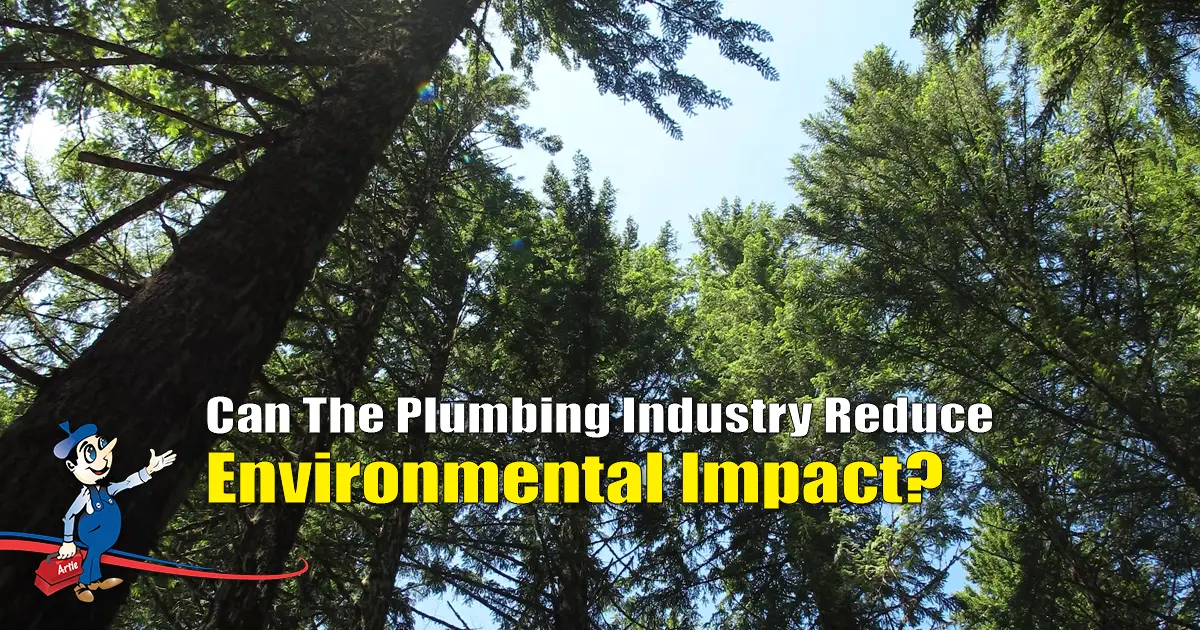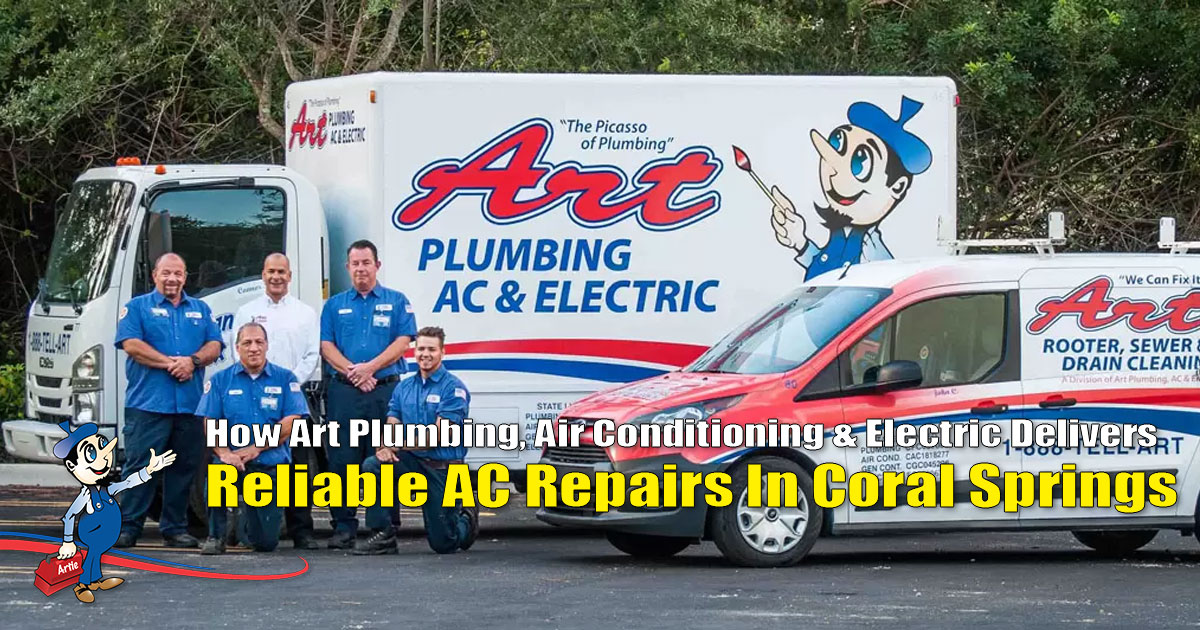Can The Plumbing Industry Reduce Environmental Impact?

From the manufacture of pipes and fittings to their installation and use, there are many ways that plumbing can affect the environment. While there is no denying that plumbing has historically had a negative impact on the environment, you may be wondering if measures are being taken today to ensure that plumbing systems cause less environmental damage.
You will be happy to know that great strides have been made in the plumbing industry to be more eco-friendly, and you can take advantage of these changes, too! In this article by Art Plumbing, Air Conditioning & Electric, we will examine some of the ways the plumbing industry has reduced environmental impact and how you can play a part in this effort.
Ways to Reduce Environmental impact with Your Plumbing
There are several measures that the plumbing industry has taken to reduce its environmental impact. Here are some of its most effective strategies:
Utilize Energy-Efficient Fixtures
Using energy-efficient plumbing fixtures can reduce water consumption and save money on utilities. Small efforts can have a significant impact on the environment. When choosing fixtures, look for ones that have a low flow rate and are certified by the EPA.
Reduce Water Waste
A significant way to reduce the environmental impact of waste is to reduce water consumption. Plumbers should ensure all pipes, fittings, and other materials are correctly installed to avoid leakages. They should also invest in water-efficient fixtures and inspect them regularly to ensure they are running as efficiently as possible.
Educate Yourself and Others
A plumber must stay on top of the plumbing industry’s latest technological advancements and green materials. Plumbers should take advantage of educational opportunities, such as attending workshops or enrolling in online courses. Additionally, they should share their knowledge with others by hosting seminars, giving lectures, or writing articles and blogs on the subject.
Invest in New Technology
The plumbing industry can significantly reduce its environmental impact by investing in new technologies, such as waterless urinals, greywater systems, and low-flow toilets. These systems use less water and energy, so they are much more sustainable than traditional fixtures. Investing in these new technologies can also help plumbers stay ahead of the competition and make their businesses more successful.
Use more Durable Materials
Plumbers should look for materials made to last, such as stainless steel and copper fittings. These materials may be higher initially, but they are more durable in the long run and will save you money. Additionally, they are much less likely to leak or corrode, which helps reduce water waste and pollution.
Recycle Project Materials and Waste
Finally, plumbers should strive to recycle as much of their project materials and waste as possible. This includes aluminum pipes, copper fittings, and plastic pipes. Recycling these materials helps conserve resources and prevents them from ending up in landfills.
The plumbing industry can significantly reduce its environmental impact by following these strategies. These measures benefit the environment, save money, and help businesses remain competitive. Plumbers can positively contribute to their communities and create a healthier planet for everyone by taking these steps.
The Challenges of Sustainable Plumbing
The plumbing industry must constantly strive to reduce its environmental impact. With aging infrastructure, a growing population, and changing climate conditions, the need for reliable, sustainable plumbing solutions grows ever more significant. The challenge lies in finding ways to meet this demand while protecting our environment and conserving resources.
The plumbing industry’s biggest challenges are energy efficiency, water conservation, wastewater management, and hazardous waste disposal.
Energy Efficiency
To reduce its environmental impact, the plumbing industry must focus on improving energy efficiency standards in new construction and retrofitting existing buildings. New technologies such as low-flow fixtures and insulation systems help save energy, while other building codes encourage using energy-efficient materials.
Water Conservation
The plumbing industry must prioritize water conservation initiatives to reduce environmental impact. This includes using low-flow fixtures in residential and commercial buildings and reducing water waste through more efficient irrigation systems. In addition, proper maintenance of plumbing systems is essential to prevent water loss and reduce water consumption.
Wastewater Management
Wastewater management is another major challenge for the plumbing industry. Without proper wastewater treatment, contaminants can seep into our environment and cause significant damage to ecosystems. The plumbing industry must focus on developing new technologies that improve wastewater treatment and make it more efficient.
Hazardous Waste Disposal
The plumbing industry must also ensure the safe disposal of hazardous waste, including chemicals and other materials. You can do this through proper storage and handling procedures and effective recycling and reuse programs that minimize environmental impact.
How We Can Play a Part
At Art Plumbing, Air Conditioning & Electric, we offer a wide range of services to help you improve the sustainability of your plumbing. From energy-efficient fixtures and insulation systems to water conservation initiatives, hazardous waste disposal solutions, and beyond, our team provides turnkey solutions that reduce your environmental impact.
We understand the challenges of sustainable plumbing and are dedicated to helping our clients meet those challenges by providing reliable, cost-effective solutions. Contact us today to learn more about our plumbing services and how we can help you reduce your environmental impact.



